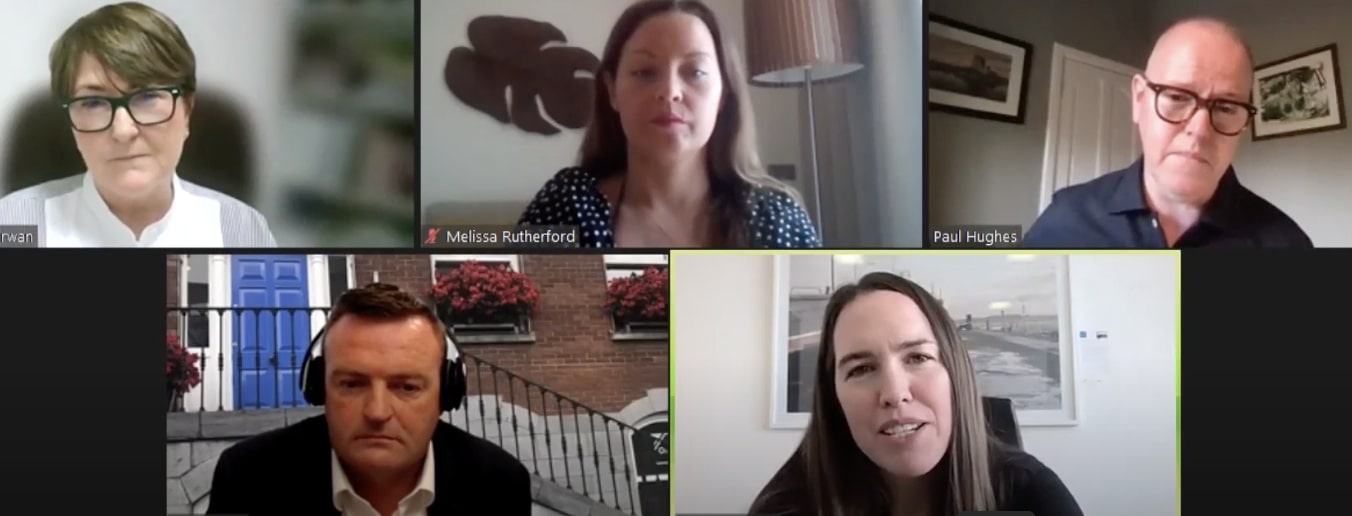
The human factor
Vulnerable clients are often dealing with considerable loss that results in trauma, the fifth Law Society High Impact Professional Series Webinar (11 July) has heard.
The webinar, for which 670 people registered, addressed key areas, such as managing the emotional demands of complex legal cases, balancing client expectations, and addressing vicarious trauma.
Clients suffering from trauma may require additional thinking and support from their legal teams, the webinar heard.
Emotional disturbance
Psychotherapist Paul Hughes, who works with Law Society trainee solicitors, said that trauma can arise because of emotional disturbance that had a lasting adverse effect on that person's functioning.
This could range from physical, sexual and emotional abuse and childhood neglect, to poverty, violence or war. “Trauma can be overused as a word as well,” he commented.
Vicarious trauma could occur when people were working with survivors of trauma, Hughes said, adding that this included many solicitors, and might result in solicitors becoming worried or overly preoccupation with their clients.
Secondary trauma is experienced by a solicitor upon hearing the survivor's experience.
It was a subjective matter to draw the line as to what constituted trauma, the webinar heard.
Chair Fiona McNulty (Mason Hayes & Curran health and prosecutions partner) asked how trauma-informed lawyering could help solicitors to respond not only to their client needs, but to protect themselves as well.
Kindness and understanding
Denise Kirwan (Comyn Kelleher Tobin childcare partner) said that everyone should be protected in a well-regulated situation, with avoidance of triggers and kindness and understanding shown throughout.
Setting personal boundaries was important for solicitors, Paul Hughes said, while solicitor Melissa Rutherford, who co-founded Trauma Aware Lawyers in Scotland, agreed that setting time boundaries was essential, although some flexibility was required with vulnerable clients.
O'Flynn Exhams LLP partner Pat Mullins, a mediation specialist with deep experience of complex litigation, said that many lawyers might not even realise that they were triggered in relation to the work that they do.
“You have to balance the obligation to represent your client to the best of your ability, and park or compartmentalise your own views in relation to the possible victim, or the children who are involved,” he commented.
“Quite often we deal with clients who are suffering from significant and moderate PTSD because of accidents, sexual violence, or domestic violence,” he said.
It might be appropriate, at times, to tell a client that they needed psychotherapy or counselling, he said, to take on board the legal advice they were being given.
“We're not psychotherapists and we're certainly not qualified [for that role],” he said.
Test for lawyers
Handling these situations was one of the biggest tests for lawyers, he commented, adding that they were becoming ever more common as society grew more complex.
Mediation could be a useful tool in steering parties towards settlement, Pat Mullins said.
Mediation can lead to an apology, which a court will not order, but which may lead to a diminution of hostilities and, thus, to effective resolution of grievances.
“Mediation allows everybody an opportunity to be heard in a place where a sufficient time is given for them to be heard,” he commented, adding that the more relaxed atmosphere was conducive to settlement.
“I think it has a very strong role to play in de-escalating,” he said.
Client expectations must also be managed, Fiona McNulty said.
“I like to think that, in addition to being a solicitor, I'm an expectation manager,” said Denise Kirwan.
“It's part of my job to take that weird and wonderful set of facts and try to match it against a legislative intervention that will, hopefully, improve the subject children's lives in some respect,” she said.
“That can be far more challenging where your client is a lay person who has experienced loss and grief in some form. It’s very challenging and it takes a very skillful practitioner to do that well, and to not lose favour with their client,” she commented.
Denise Kirwan said that lawyers must always remain impartial and respectful.
Though they may find it difficult to compartmentalise difficult matters, these should not be allowed to spill into practice and professionalism in court.
Keeping emotions in check
“You have to keep your own emotions in check,” she commented, although hostile feelings may arise in proceedings where a child has been harmed in a very distressing way.
“Disguising those feelings is a work in progress,” Kirwan added. “I don't think we'll ever nail it entirely.”
Melissa Rutherford said it was okay to be upset.
“We must do a job; we must work through it. In our office, we talk about our cases. We have a kind of informal debrief most days; it's almost like peer-to-peer support that we have informally in the office,” she said.
Maintaining real human connections, both at work and at home, was key to handling these difficult emotions, the webinar heard.
Lawyers must accept their limitations and realise that they could not be saviours, the discussion heard, particularly with difficult, intense, emotional, challenging cases.
“You've got to be realistic and say there's only so much I can do for this person,” said Rutherford.
Law Society supports
The attendees were reminded of supports available through Law Society Psychological Services, including LegalMind, a subsidised, confidential and independent psychotherapy service for Law Society members and post-PPC trainees.
Law Society Psychological Services’ annual marquee festival will take place at the Law Society on Wednesday 4 September.
The theme this year will focus on ‘Well Within the Law’ which forms part of new Culture First initiatives for legal workplaces.
Find further details and RSVP here.